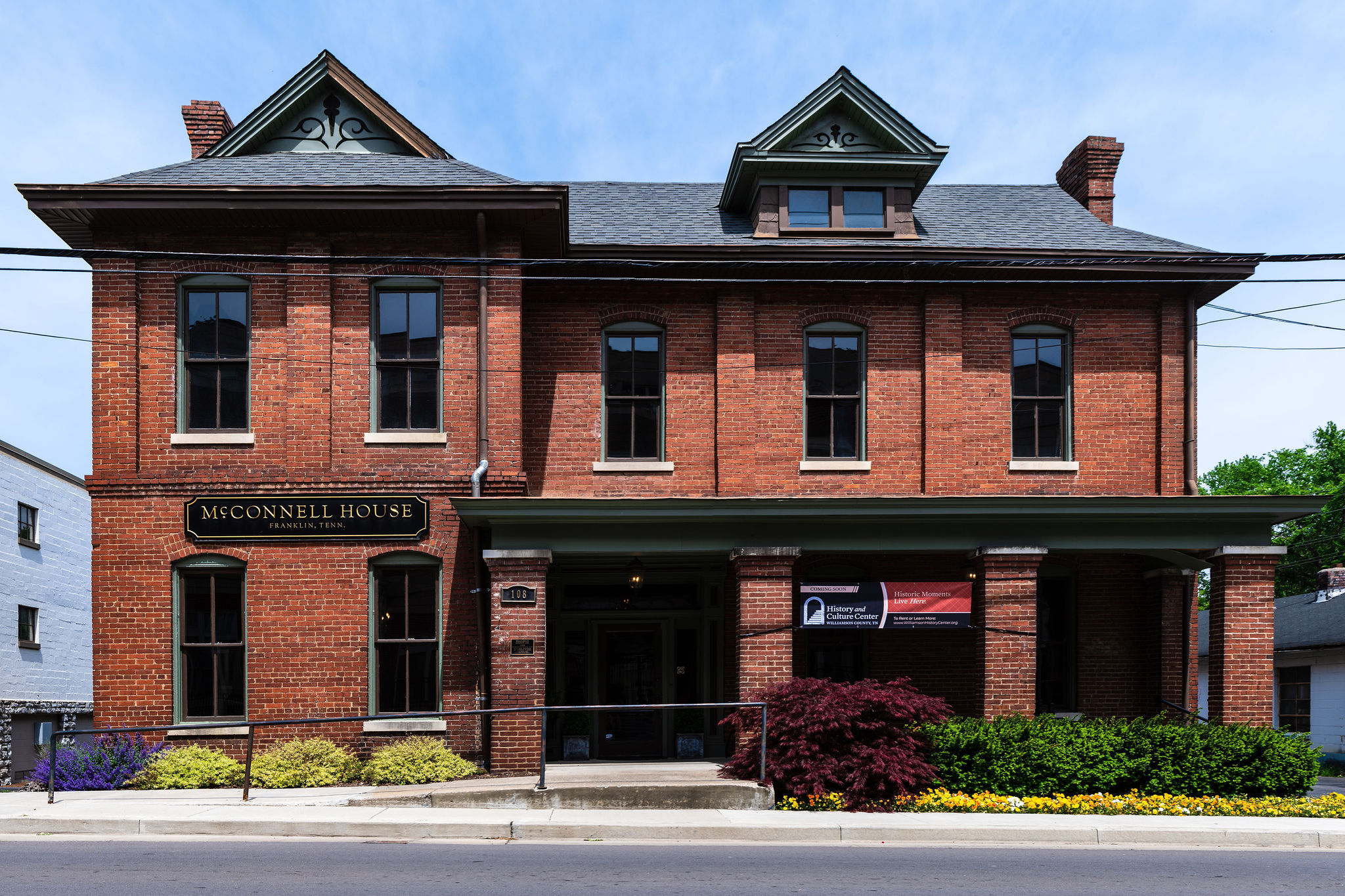The Moore-Morris History and Culture Center of Williamson County Announces Highly Anticipated Opening on February 6

Housed within a National Register of Historic Places building dating back to 1905, the Center will serve as a gateway to Middle Tennessee’s historic people, places and stories that engage, inspire and impact our collective future.
FRANKLIN, TENN. (January 22, 2024) – The Heritage Foundation of Williamson County today announced the public launch of its next cultural destination in downtown Franklin, The Moore-Morris History and Culture Center of Williamson County, which will open to the public on February 6.
Housed within a National Register of Historic Places building that dates back to 1905, the center stewards, interprets and exhibits artifacts and immersive narratives related to the social, economic and cultural history of the area.
“This is a milestone moment for the Heritage Foundation of Williamson County, officially opening the Moore-Morris History and Culture Center of Williamson County, which also marks the launch of a new division of the Heritage Foundation,” said Bari Beasley, President and CEO of the Heritage Foundation of Williamson County. “The History and Culture Center of Williamson County is the first state-of-the-art, interactive exhibition space dedicated to telling Williamson County and Middle Tennessee’s comprehensive history. It will honor and share stories of the people, places and events that make up the fabric of this region and influence our national story and culture.”
“We’re so thankful for the many supporters who stepped up to make this vision a reality, and we’re so proud to welcome our first visitors and expand on the understanding of the history that shaped our region,” added Beasley.
To lead the History and Culture Center of Williamson County, the Heritage Foundation has hired Nat Taylor as Managing Director. Before joining the History and Culture Center, Taylor worked for the Tennessee State Library and Archives where he advised county governments across the state on improving the preservation and accessibility of their historical records.
“I moved to Middle Tennessee seven years ago, but my roots date back to the region’s original settlers,” said Taylor. “I am thrilled to further discover and share the unique history of this area with visitors to the new History and Culture Center. It will be an incredible asset to this community and a can’t miss destination.”
Taylor’s educational background includes a master’s degree in history from Southern Illinois University Carbondale and a bachelor’s degree in history from the University of Illinois Urbana-Champaign. He and his wife, Kallie, have two young daughters, Elodie and Maisie.
Some of the initial exhibitions Taylor will be overseeing in his role include:
THE EMERGING COMMERCIAL UNION – 1st Floor East Gallery | (1783 – 1865)
The transformation of Middle Tennessee’s landscapes by early white settlers is illustrated with a series of layered maps and narrative that highlight how these landscapes were altered through time. What began in the early 1800s as subsistence agriculture characterized by a combination of dispersed farmlands in the valley bottoms and tree-shrouded rolling hills above was eclipsed by the rise of plantations in the 1840s and 50s. Farmers and planters in the area grew and traded with their neighbors as part of a diverse cottage economy. This space will explore the period up through the Civil War. We also see the rise of local townscapes.
THE INDUSTRIAL LANDSCAPE – 2nd Floor West Gallery | (1866 – 1917)
After the Civil War, the process of industrialization accelerated connecting the region through new forms of transportation infrastructure. The first railroad in Williamson County was the undeveloped Tennessee and Alabama (Decatur) line, completed in 1859. The railroad presents an opportunity for a center diorama that is modernized with digital touchscreens or LED panels underneath. The diorama will also have a cover, allowing it to be used as a buffet space for event rentals.
MANAGING TOWNSCAPES – 2nd Floor North Gallery | (1930s – 1950s)
Expanding on what visitors learned during the Commercial Union, the rise and fall of local business following the second World War played a vital role in the development of Franklin and small towns alike throughout Middle Tennessee. The history of how townscapes evolved is played through linked digital screens under the loft, embedded into the bar top and living portraits. Stories of The Franklin Theatre, Gray Drug, Southern Discount, Wilkerson Hardware, Ike Bryan’s Dry Goods, and more will come to life. Also, along the side of the bar, the iron bars of the jail call visitors to hear the stories of prisoners from the next door Old, Old Jail.
To sustain the Center’s nonprofit endeavors, the beautifully restored, 6,000-square-foot, three-story building will also be made available for private events. Located just blocks from the square in historic downtown Franklin, and across the street from The Harpeth Hotel, the Center will double as an exclusive event venue for weddings, rehearsal dinners, corporate events, and more. The Center is a charming and distinct multi-configurable space, with brick walls, hardwood floors, tall windows, and fireplaces, making it a picturesque backdrop for important occasions.
For tickets and more information visit: www.WilliamsonHistoryCenter.org
ABOUT THE HERITAGE FOUNDATION OF WILLIAMSON COUNTY
Since 1967, the Heritage Foundation of Williamson County has been dedicated to preserving Williamson County’s architectural, geographic and cultural heritage as well as promoting the ongoing revitalization of downtown Franklin in the context of historic preservation. Notable projects include The Franklin Theatre, Roper’s Knob, parts of the Franklin battlefield and the Old, Old Jail. Events and festivals produced by the Heritage Foundation such as Main Street Festival, the Heritage Ball, PumpkinFest and Dickens of a Christmas bring an estimated 300,000+ locals and visitors to downtown Franklin each year that creates more than a $10 million economic impact annually. The Heritage Foundation owns and operates The Franklin Theatre, Downtown Franklin Association, the Moore-Morris History and Culture Center, and Franklin Grove Estate & Gardens, currently in development. For more information about the Heritage Foundation, visit www.williamsonheritage.org.


